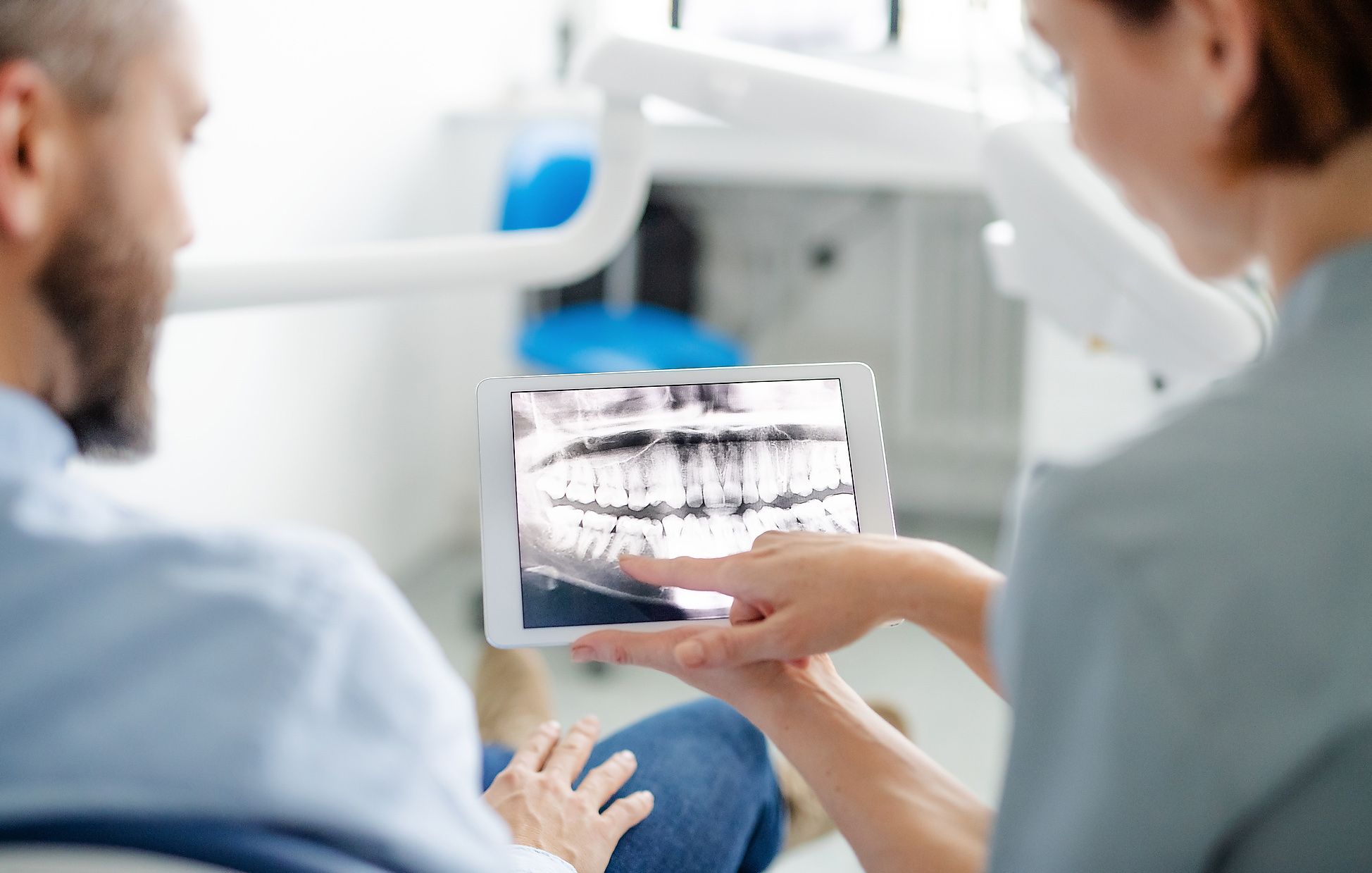Well Rooted for Better Teeth
It often starts with mild symptoms; a little bleeding from the gums, slight halitosis, which can be attributed to a new toothbrush head or the last meal. Due to its insidious onset, most affected individuals do not immediately suspect gum recession. However, periodontitis is one of the most common gum diseases worldwide and, if left untreated, can lead to severe gum inflammation or even tooth loss. Prevention and early detection by a specialist are crucial for gum health. Therefore, it is important to prioritize prevention rather than cure with your specialist for periodontal diseases in Vienna's Alsergrund.
What Is Periodontology and What Does It Do?
Healthy teeth also include their secure hold in the mouth. Periodontology is a field of dentistry that deals with the prevention, diagnosis, and treatment of diseases of the so-called tooth-supporting structure. This includes the gums, root cement, tooth-supporting fibers, and the jawbone. Periodontology is not only crucial for overall oral health but also relevant systemically as it can positively influence cardiovascular diseases and diabetes.

Dr. Thomas Pellech
"Attention and Regular Check-ups in the Dental Practice Are Essential to Recognize and Treat the Painless Initial Stage of Periodontitis in Time"
What are the Goals of Periodontology?
The primary goal of periodontology is to preserve natural teeth. Targeted measures can minimize or reverse damage to the tooth-supporting structure, ensuring the preservation of teeth. To prevent periodontal diseases, thorough oral hygiene is essential. Regular professional teeth cleaning helps in early detection and prevention of gum disease and inflammation of the tooth-supporting structure, periodontitis, caused by bacterial infections. Timely diagnosis and treatment are particularly important for these diseases, as without therapy, periodontitis can lead to tooth loss.
What Causes Gum Inflammation and How Do We React to It?
Gum inflammation or gingivitis is mostly triggered by bacterial plaque. Mechanical stimuli such as incorrect or aggressive tooth brushing can also cause gum inflammation, which can subsequently lead to gum recession. Sensitivity to cold, heat, or acidic foods are the classic symptoms. Treatment initially involves improving general oral hygiene and gum care, and adjusting brushing techniques. In severe cases, surgical procedures may be necessary. As a certified specialist in periodontology in Vienna's Alsergrund, you are in the best hands with us.
What Is Periodontitis and How Can We Help?
If gingivitis is left untreated, further damage can lead to periodontitis. The inflammation of the tooth-supporting structure, periodontitis, is a more severe bacterial infection favored by poor oral hygiene, smoking, or genetic predisposition. It leads to gum recession, bone loss, pocket formation, loosening of teeth, and ultimately, tooth loss.
Periodontitis is treated with optimized oral hygiene, deep cleaning, scaling and root planing, antibiotics, and in severe cases, surgical interventions. Untreated, this disease can not only lead to tooth loss but also affect overall health, increasing the risk of cardiovascular diseases, for example.
Preventive Measures
- Professional teeth cleaning
- Optimization of oral hygiene and gum care
- Supporting holistic health
- Surgical interventions
Periodontal abscess - What Can We Do Now?
A periodontal abscess often occurs in deep gum pockets. Typical symptoms include severe pain, swelling, redness, and pus release at the gum. Treatment includes emptying the abscess, administering antibiotics, and thorough cleaning of the affected areas.
Symptoms of periodontal abscess
- Bleeding gums
- Swelling
- Severe pain
- Redness and pus release at the gum
Peri-Implantitis – Gum Inflammation Around the Implant
Dental implants can also be affected by inflammation, known as peri-implantitis. Similar to periodontitis, the inflammation around the implant can progress to tissue and jawbone loss, leading to loosening and ultimately, the loss of dental implants.
The treatment of peri-implantitis primarily involves the removal of bacteria and germs, achieved through a professional teeth cleaning to eliminate deposits and clean implants and prostheses. In advanced cases of peri-implantitis, especially with loose implants, bone grafting may be necessary. This surgical intervention is necessary if a significant amount of bone has been lost due to inflammation, which is crucial for implant stability.
Most Common Causes of Peri-Implantitis
- Poor oral hygiene
- Smoking
- Taking certain medications
Everything Is Connected
Systemic diseases outside the oral cavity, such as diabetes, osteoporosis, or autoimmune diseases, weaken the tooth-supporting structure and favor existing periodontal diseases. In such cases, periodontists work closely with other specialists to treat local symptoms and ensure comprehensive therapy. We are happy to advise you.
